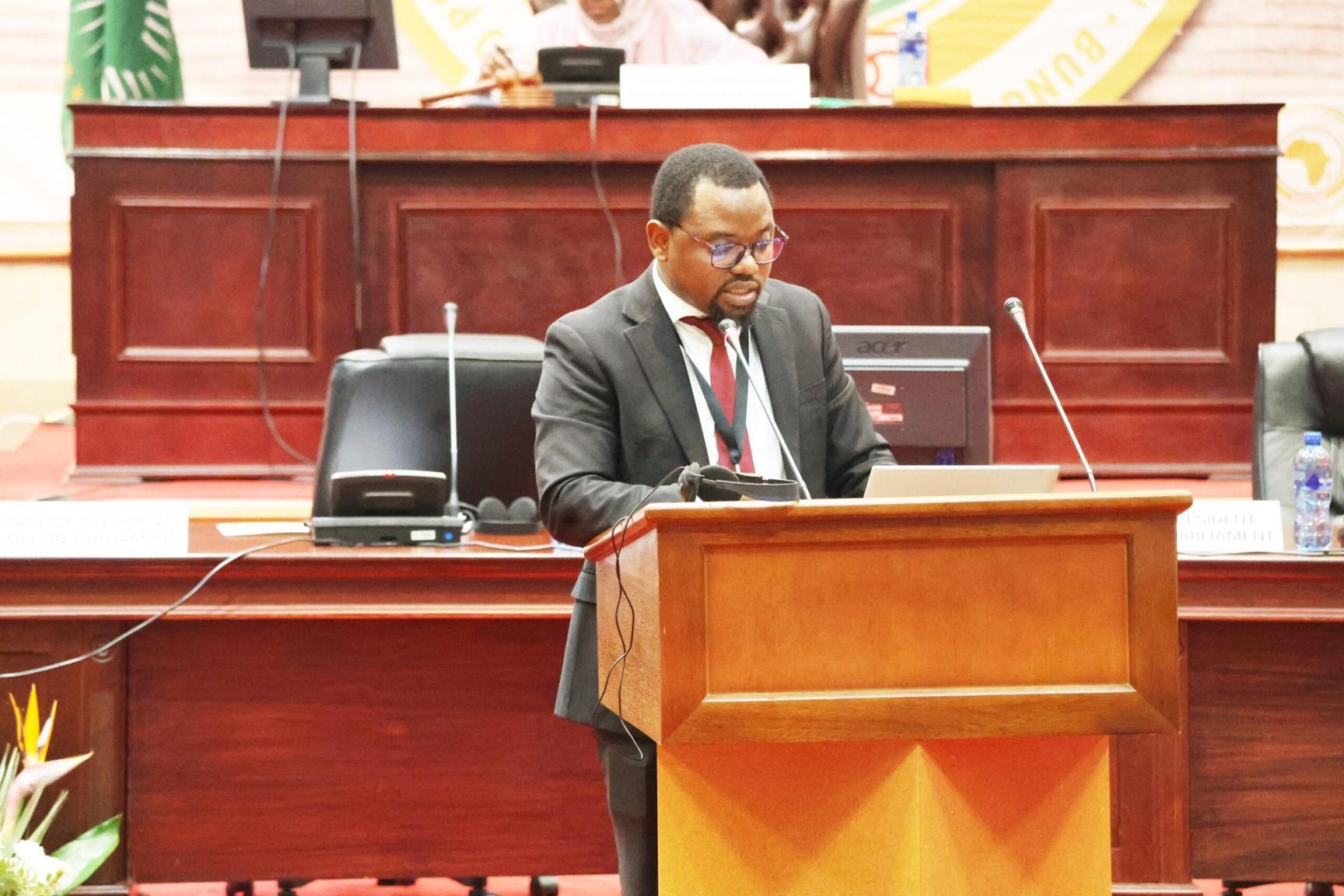Africa-Press – Namibia. Speaking to parliamentarians and technologists at a plenary session during the 5th ordinary session of the Sixth Legislature of the Pan African Parliament’s headquarters in Midrand, South Africa, Anthony Mveyange, the Director of Programmes at the African Population and Health Research Centre (APHRC), called on Africa to be a passive participant in the AI revolution.
The session was held under the theme “Building a Continental Framework for AI, Data Sovereignty, and Responsible Digital Innovation”. Legislatures held an intensive debate on the future of Artificial Intelligence (AI) in Africa.
Africa is said to stand at the cusp of a technological revolution, with Artificial Intelligence (AI) poised to redefine its economic, social, and cultural landscapes. As the continent embraces AI, the next decade is predicted to promise transformative advancements. From healthcare to agriculture, education to governance.
“Data is the new oil, and Africa cannot be left behind,” stressed Mveyange.
He detailed the Lusaka Declaration, an ambitious initiative launched in collaboration with GSMA, that provided AI capacity training for African parliamentarians. The program produced critical reports on digital health and smart manufacturing, but more importantly, sparked a movement. “We trained MPs on AI basics,” Mveyange noted. “Now, we’re preparing to scale this to all 275 Pan-African Parliamentarians by September.”
He noted that AI’s role in governance is to grow, with governments using it for everything from tax collection to urban planning. However, ethical concerns loom large. By 2030, expect robust AI policy frameworks, with Pan-African initiatives like the African Union’s AI strategy ensuring data sovereignty and bias mitigation but there are challenges, majority of MPs underscored that the road won’t be smooth, infrastructure gaps, like unreliable electricity (affecting 600 million Africans today), could slow AI deployment, skills shortages are another hurdle. Africa needs millions of data scientists and engineers, and without inclusive policies, AI risks widening inequalities, favouring urban elites over rural communities. Building literacy, crafting policy, and engaging strategically are the cornerstones of Africa’s AI roadmap, and that roadmap extends beyond Africa’s borders. Mveyange referenced upcoming global events like the Mobile World Congress in Kigali and an observational mission in China as opportunities for exposure, not subservience. “This isn’t a China partnership,” he emphasised. “It’s about strategic learning. We must see the world, but stay rooted in our sovereignty.”
Technologists emphasised that Africa’s AI future is not just about technology, it’s about people, the continent’s innovators. AI will shape a uniquely African AI ecosystem. By 2030, AI could power a renaissance, blending global tech with local ingenuity to solve Africa’s biggest challenges.
The call is for Africa to secure digital sovereignty in the age of data with data localisation demands on the rise and fragmented personal data protection regulations, African states are said to face the task of establishing digital sovereignty. Navigating data control, infrastructure ownership, and regulation of data businesses are all necessary building blocks for a fair and inclusive digital ecosystem.
From a technical and ethical standpoint, Professor Mirjam van Reisen of International Relations, Innovation and Care, Professor FAIR Data Science,
introduced a complementary angle, data sovereignty through decentralised infrastructure. Prof van Reisen is leading the VODAN project, and her team is working in countries such as Kenya, Uganda, Ethiopia, Tunisia, Liberia, Ghana, Guinea-Bissau and Namibia, building AI systems that operate on-site, without transferring sensitive data across borders. “Good AI needs good data. And good data is contextual,” she said. “That means time, place, culture, and meaning. “When we remove data from its roots, we risk misunderstanding or misusing it,” said Prof van Reisen. She called Africa to action, to legislate and to protect its data.
“We need decentralised, scalable data spaces governed by local institutions, and that requires legal frameworks to enshrine data ownership and ethical AI principles.”
Both Mveyange and Prof van Reisen agree that Africa cannot wait to be invited into the AI conversation. It must lead it.
Mveyange emphasised that leadership begins with policy coherence, public-private collaboration, and capacity building. Prof van Reisen stated that data hinges on technical autonomy, local control, and culturally embedded innovation.
“Africa and Europe share a common threat, lack of control over our data,” said van Reisen while advocating for data that is Findable and Accessible under clear conditions, Interoperable and Reusable with data Ownership, Localisation and Regulatory compliance (FAIR-OLR), a distinctly African approach that respects community context, traditional knowledge, and linguistic diversity.
But where is the African Union’s role? Both Mveyange and Van Reisen placed significant responsibility on African Union institutions to drive the change. “We already have the innovators,” said Prof van Reisen. “Now we need legislation, investment, and political will.”
Mveyange echoed this sentiment, emphasising the urgency of action.
“It will take all of us governments, parliaments and the private sector. We can’t afford to be spectators in this AI era.”
“If we want quality AI,” Prof van Reisen concluded, “we must start with quality data. And that means keeping data close to its roots, where it can truly serve the people it comes from.” The revolution has begun. And this time, Africa is not just participating, it’s leading.
For More News And Analysis About Namibia Follow Africa-Press






